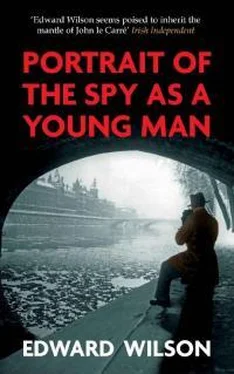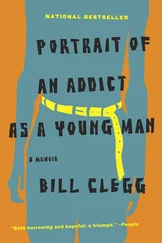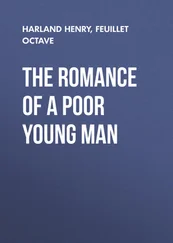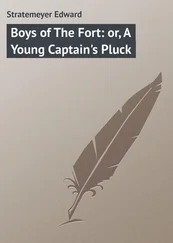‘Emotional and mental survival.’
‘Yes.’ The cat flap sounded again. ‘Ah, before Thomas arrived and diverted us, you asked about Marie. I did love her, but not the way that I love your grandmother. I loved Marie as a teacher and older woman – and, dare I say it, that love was mixed with a lot of wild eroticism.’
Leanna smiled. ‘I wish President Macron was here. But what happened next?’
‘Two days after the liberation of Limoges, Marie dragged me off to Bordeaux, her hometown – which was still under German occupation. Baker Street was furious that I had gone incommunicado. One of their unanswered transmissions was something like: Thank you for liberating Limoges. When you sober up, contact RF Section London for your next assignment . But I was more under Marie’s command than SOE’s. It wasn’t easy to get to Bordeaux as the train lines blown up by the Resistance hadn’t been repaired, but we managed to get a train from Agen to Bordeaux Saint-Jean.’ Catesby shook his head. ‘It was a nightmare. Saint-Jean was more a fortified German position than a railway station. It was dominated by a huge concrete blockhouse and there were German soldiers everywhere. Fortunately, we had come without a radio and our bags got through with only a cursory check. But the atmosphere was tense.’
‘If it was so dangerous, why did she take you to Bordeaux?’
‘Her reasons were both idealistic and selfish. Her family were part of a network sheltering a German naval officer who had defected to the Resistance after blowing up a munitions store and killing fifty of his comrades.’
‘How extraordinary.’
‘Even more extraordinary was that he was an explosives expert who had been tasked with destroying the port of Bordeaux before the Germans left, but his destruction of a bunker full of fuses and ordnance put paid to that. They hardly had any explosives left. The Germans were baying for his skin and searched the city high and low to find him. Had they got him, his fate would have been unspeakable.’
‘Did you meet him?’
‘Briefly, that was part of Marie’s reason for bringing me to Bordeaux. She was hoping I could persuade SOE to arrange his escape to England, but I couldn’t.’
‘What was he like?’
‘A modest man. He said he refused to obey orders because he couldn’t see the point of destroying Bordeaux after the war was already lost, but he regretted having killed so many of his colleagues. On the other hand, his actions saved the lives of thousands of French civilians. He married a Frenchwoman and spent the rest of his life in the city he saved. In fact, blowing up the port would have been more spiteful than practical. The Germans had already blocked the river by scuttling two hundred ships – and they kept a pocket of resistance at Royan which controlled the entrance of the Gironde until the end of the war. Eisenhower was racing towards the Rhine – he didn’t want to waste troops and time by clearing out the “Atlantic pockets”. It was an odd situation. Guernsey and Jersey were still under German occupation nine months after Paris was liberated.’
‘What were Marie’s “selfish” reasons for taking you to Bordeaux?’
‘She wanted me to help protect her family, their property and their interests. The merchants and growers of Bordeaux didn’t regard themselves as wine royalty; they saw themselves as royalty full stop. They considered me like something the cat had dragged in. By the way, where is he?’
‘Thomas is sunning himself on the patio bench.’
‘Should I put some cream on his nose?’
‘I wouldn’t disturb him.’
‘Where was I?’
‘Marie’s family.’
‘They weren’t as idealistic as her. She was a genuine hero. Her family seemed to have feet in both camps. Some were résistants , hence the sheltering of the German defector, and some were collabos – or at least did business with the Germans. Protecting their wine empire required some fancy footwork and duplicity. Her estranged husband was, of course, a collabo . Guingouin would have had him executed in the épuration sauvage .’
‘But he survived.’
‘And very well too. He was a great pal of the Abwehr officer, Otto Bömers.’
‘The one who met you in Lyon to say your cover was blown?’
‘Yes – and that was a frightening moment. Bömers was a selfish shit who wanted safe nests in both camps. As I mentioned before, he was a wine importer who knew Marie and her husband in the 1930s. The husband was, I assume, a willing cuckold, who didn’t mind her sleeping with Bömers – either for business reasons or because it gave him some perverted thrill. By the way, that’s why I always called her by her cover name, Marie. I couldn’t bear to use the name she had when she shared a bed with those two slime buckets. I wanted to put my arms around a different woman.’
‘Jealousy is often the dark side of love.’
‘Indeed. And we did see Otto Bömers again in Bordeaux. I wanted to shoot him, but he travelled with too much protection. It was at the end, one day before the Germans left Bordeaux. Bömers, with the help of Marie’s estranged husband, was looting the wine cellar of a rival merchant. The husband had denounced the merchant to the Abwehr as one of those who had given shelter to the naval officer. False, of course. But it gave Bömers an excuse to raid his cellar and load up a lorry with priceless cases of vintage Bordeaux. The husband was one of those, including the collabo mayor and the préfet de police , who tried to broker a safe passage for the Germans out of Bordeaux. But unlike Limoges, it wasn’t a bloodless exit. The Resistance, largely led by Spanish Republican refugees and exiled Basques, fought running gun battles with the Germans as they departed. One of them gave me a pistol and I fired a few parting shots from a safe distance. A symbolic gesture.’
‘What happened to Bömers?’
‘He went into hiding, but was eventually arrested and put on trial. He was in prison for two years.’ Catesby gave a bleak smile. ‘When he came out, he went back into the wine trade. I suspect his stash of looted Bordeaux gave him a flying start. I always wanted to put a brick through his shop window and repatriate a few cases of vintage Margaux.’
‘You’re still angry, aren’t you?’
‘We were too soft on the so-called “ex-Nazis” – and the collabos too. I blame the Americans. They preferred Nazis and fascists to socialists. After the war, the CIA created a rat run called Operation Paperclip to rescue two thousand Nazi rocket scientists and intelligence officers from the hangman’s noose at Nuremberg. One of them was Wernher von Braun who helped put the Americans on the moon. Another was Klaus Barbie, the butcher of Lyon, who helped the CIA slaughter revolutionaries in South America, a continent they jokingly referred to as the “Fourth Reich”.’ Catesby shrugged. ‘Maybe I’m just a bitter old man.’
‘You are a very loving person. Anyone can see that.’
‘I wonder if Marie saw it. After the Germans left we spent the night in her mother’s house, a perfect piece of eighteenth-century architecture frowning on the river with its sunken ships and blown bridges. The interior was all understated elegance – and priceless heirlooms were now emerging from their hiding places with Marie in charge. That evening there were only the two of us in the house and I went to bed first. I was thrilled when I heard footsteps in the corridor and then her hand on the door. She was in a silk dressing gown and her hair, unusually for her, was done up making her look older and even more stately. She came over to the bed, but didn’t get in. She kissed me on the forehead and said, “Adieu, my Rosenkavalier.” I never saw her again – and can never hear the Marschallin’s farewell trio without crying.’
Читать дальше












